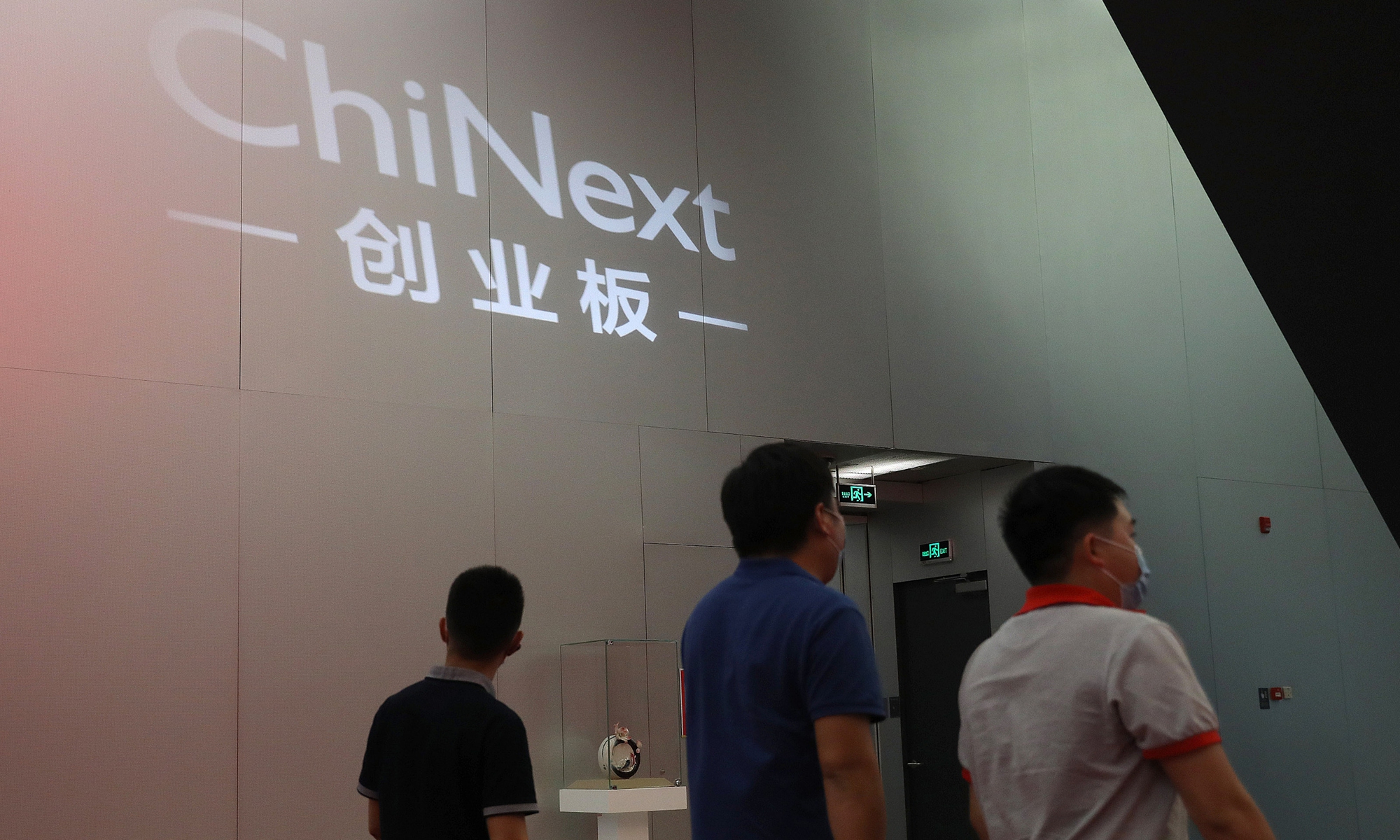First batch of companies go public on registration-based ChiNext
Source: Global Times Published: 2020/8/24 11:03:50

Photo: CFP
Investors welcomed the reform, with fevered trading pushing all 18 stocks sky high, and causing some of them to suspend trading twice during the day. One of them, the Hebei-based medical diagnosis company Contec, at one point surged by nearly 30 times and secured a 1,061 percent hike at the end of the afternoon trading session, setting a new record for a first-day jump on the A-share markets.
In general, the ChiNext board surged by 1.98 percent to 2684.63 percent at close time.
Chinese Vice Premier Liu He delivered a congratulatory message on Monday, saying that the reform will lay the foundation for market-oriented reforms on the small and medium enterprise board and the main board further down the line.
He also noted that China is building a "multi-layer" capital market that will support more high-quality enterprises to go public.
The reform marks groundbreaking changes for the board, in that companies hoping to list on the exchange no longer need to get approval from the regulators. It also largely eased profitability requirements, though companies that don't make money still need to wait another year to apply for ChiNext IPO.
In addition, there are no price limits during the first five trading days for a newly listed stock. After that, shares will be allowed to rise or fall up to 20 percent during a trading session, compared with 10 percent previously.
Dong Dengxin, director of the Finance and Securities Institute at the Wuhan University of Science and Technology, said that the reforms will push China's industrial upgrading as it is more accommodative to new economy companies.
"The previous approval system tended to focus on profitability capabilities and assets scale, and its set of IPO standards are hard to achieve by new economy firms, but with the new registration-based paradigm which lowered IPO standards, those companies can go public and make benefit of China's capital markets for fundraising," he said, adding that the surge of the 18 new stocks reflects the fact that investors place high hopes on the reformed board and on technology-focused companies.
The experts also said that the ChiNext reforms would help provide another solution for mainland companies that are listed in the US, which are caught in the China-US friction and is facing increasingly pressure from the US government.
According to Dong, the ChiNext allows red-chip companies and stocks with a dual-class structure to go public, thus "opening the gate" to US-listed mainland companies that are eying a return to A-share markets.